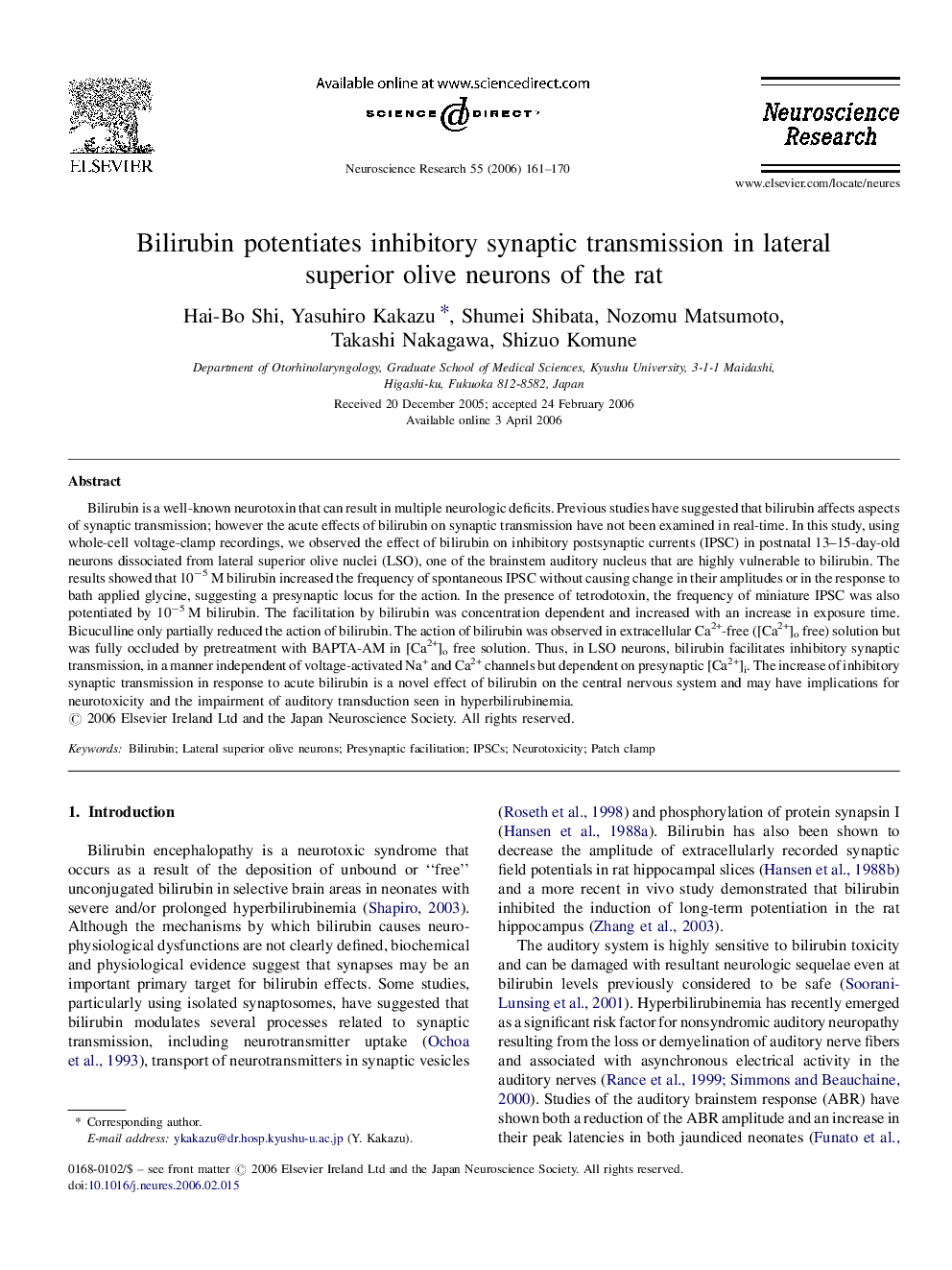| Article ID | Journal | Published Year | Pages | File Type |
|---|---|---|---|---|
| 4352423 | Neuroscience Research | 2006 | 10 Pages |
Abstract
Bilirubin is a well-known neurotoxin that can result in multiple neurologic deficits. Previous studies have suggested that bilirubin affects aspects of synaptic transmission; however the acute effects of bilirubin on synaptic transmission have not been examined in real-time. In this study, using whole-cell voltage-clamp recordings, we observed the effect of bilirubin on inhibitory postsynaptic currents (IPSC) in postnatal 13-15-day-old neurons dissociated from lateral superior olive nuclei (LSO), one of the brainstem auditory nucleus that are highly vulnerable to bilirubin. The results showed that 10â5Â M bilirubin increased the frequency of spontaneous IPSC without causing change in their amplitudes or in the response to bath applied glycine, suggesting a presynaptic locus for the action. In the presence of tetrodotoxin, the frequency of miniature IPSC was also potentiated by 10â5Â M bilirubin. The facilitation by bilirubin was concentration dependent and increased with an increase in exposure time. Bicuculline only partially reduced the action of bilirubin. The action of bilirubin was observed in extracellular Ca2+-free ([Ca2+]o free) solution but was fully occluded by pretreatment with BAPTA-AM in [Ca2+]o free solution. Thus, in LSO neurons, bilirubin facilitates inhibitory synaptic transmission, in a manner independent of voltage-activated Na+ and Ca2+ channels but dependent on presynaptic [Ca2+]i. The increase of inhibitory synaptic transmission in response to acute bilirubin is a novel effect of bilirubin on the central nervous system and may have implications for neurotoxicity and the impairment of auditory transduction seen in hyperbilirubinemia.
Related Topics
Life Sciences
Neuroscience
Neuroscience (General)
Authors
Hai-Bo Shi, Yasuhiro Kakazu, Shumei Shibata, Nozomu Matsumoto, Takashi Nakagawa, Shizuo Komune,
